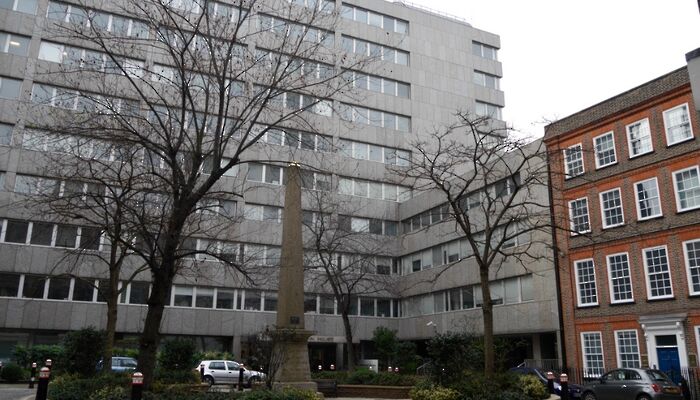Universities unaware of thousands of incidents of racial harassment, says new report
A newly-published report shows a great gulf between the number of incidents students say they’ve reported to universities and the number of reports that these universities have recorded.

This week, a government equality watchdog published an inquiry into racial harassment in UK publicly funded universities, finding that these institutions are seriously underestimating the scale of the issue.
The Equality and Human Rights Commission (EHRC) report found a significant disparity between the number of students experiencing racial harassment, the number of incidents reported to universities, and the number of incidents being recorded by those universities.
A student survey conducted by the EHRC found that an estimated 60,000 students reported complaints about racial harassment in universities across the UK within the first six months of the last academic year. However, there were only 559 recorded complaints of racial harassment in all 159 of the UK’s publicly funded universities over the last three-and-a-half years.
According to Rebecca Hilsenrath, Chief Executive of the EHRC, the report shows that universities are “not only out of touch with the extent that [racism] is occurring on their campuses, some are also completely oblivious to the issue”.
The EHRC also attempted to quantify the impact of racial harassment, finding that around 1 in 20 students said they left their studies due to racial harassment. Of the students who experienced racial harassment, 8% said they had felt suicidal.
According to the report, one in four BME students said that they had experienced racial harassment. This varied by ethnic group, with 29% of black students, 27% of Asian students and 22% of mixed/other students facing harassment because of their race.
More than half of those harassed said they had experienced “racist name-calling, insults and jokes”. Other common forms of harassment included microaggressions, being ignored or excluded from conversations or activities and being exposed to racist material. One in five said they were also physically assaulted.
Whilst, in most cases, the harasser was said to be another student, according to the report “a large number said it was their tutor or another academic.”
Two-thirds of students who experienced racial harassment, however, did not report it. Some of the main reasons for this were that they had no confidence the university would address it, they could not judge whether it was serious enough to report, they found it difficult to prove what occurred and they did not even know how to report the incident. Others feared that reporting an incident might affect their education or career.
The report found that 8% of all students surveyed suffered racial harassment. Even if two-thirds of these students didn’t report this harassment, that still leaves an average of around 10,000 reports of racial harassment per month across the entire university student population. However, across all publicly funded universities, an average of only 13 formal complaints were recorded per month. When the EHRC surveyed universities, they found that 29% claimed to have received zero complaints of racial harassment from students between the start of the 2015/16 academic year and January 2019.
The EHRC concluded that “universities have an incomplete picture of the scale of racial harassment because of under-reporting and informal complaints not being recorded routinely.”
The report did encounter some criticism because of its inclusion of racial harassment against white British students. It states, for example, that “9% of White British students had experienced racial harassment since starting the course.”
Priyamvada Gopal, a reader at Cambridge University’s Faculty of English, argued that “Anti-English sentiment in Wales is emphatically not the same as targeting or disadvantaging black people as a vulnerable minority.”
Kehinde Andrews, Professor of Black Studies at Birmingham University, added: “The idea that you could equate the racism experienced by someone who is black, with the experience of a Welsh [person] at an English university demonstrates just how ignorant the authors of the report are. [The report] conflates racism with individual harassment and entirely minimises the racism by including groups who do not experience racial prejudice.”
 Interviews / You don’t need to peak at Cambridge, says Robin Harding31 December 2025
Interviews / You don’t need to peak at Cambridge, says Robin Harding31 December 2025 Comment / What happened to men at Cambridge?31 December 2025
Comment / What happened to men at Cambridge?31 December 2025 News / Unions protest handling of redundancies at Epidemiology Unit30 December 2025
News / Unions protest handling of redundancies at Epidemiology Unit30 December 2025 News / Varsity’s biggest stories of 202531 December 2025
News / Varsity’s biggest stories of 202531 December 2025 News / Downing investigates ‘mysterious’ underground burial vault 29 December 2025
News / Downing investigates ‘mysterious’ underground burial vault 29 December 2025










